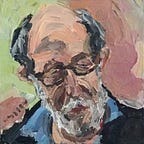Decisions are Emotional
I had found myself listening to several intelligent people discuss in a friendly manner what political system is best among communism, socialism, capitalism, democracy, dictatorship, monarchy, etc. It occurred to me that when it comes to decisions, the only differences are really in the small details. All decisions are really made for their short term advantage, or their long term advantage. But for the advantage for the one making them, or the majority of the folks making them. In addition, the decision is always based on the emotions of the person or persons making it.
In our current position here in the U.S., we seem to be struggling with a massive division between those who want a short term advantage personally, and those who want a long term advantage. However, those of us that think we want a long term advantage are lower on the narcissism scale (for better or worse) and don’t want those others to get a short term advantage over us. In our system, we talk about how much experience our elected officials- especially the highest authorities- have as a way of assuring ourselves that they will be reasonable and level-headed. In Plato’s republic, he likes a philosopher king of good standing to be reassured that they are this, in addition to intelligent and qualified for the difficult task. He is idealistic and thinks everyone will be happy in their own place in life (gold, silver, and bronze castes).
In the discussion, there was much chagrin questioning whether we ourselves are being emotional rather than rational in our political choices. There was one unusual theory presented, that a government can get used to a certain amount of graft, and the rules would become clearer and less complicated. It’s a theory I am not familiar with, but there are probably many political theories I am not familiar with. This sounds like an arithmetic: when you multiply a negative number by a negative number, you come out with a positive number. It is intriguing to think that people might be flexible enough to get used to negative emotions to the point of being able to function in a positive manner together, but I still think that would be inferior to a system where they would have positive emotions and work together. And thinking about it, it could explain the comradery seen in an upstairs-downstairs-type situation, where the elite have their system and the not so fortunate have a different but parallel system.
Come to think of it, this would add more ways to slice and dice group interactions amongst sets of people. Both groups could be divided into hostile and benevolent
- power difference
- individual family = age difference
Many people fault Descartes for separating scientific (rational) from anecdotal (emotional) in his best known quote “I think, I therefore I am”. This may be a mistake, in that he was trying to give a simple proof for the existence of man rather than a fantasy of some other creature. I understand there is a chinese quote: “during the day, I though I could be a man fantasizing I was a butterfly, and at night that I was a butterfly fantasizing I was a man”. Which says animals that think are mankind, regardless of their shape (with or without wings). Descarte’s writings were disliked by the catholic church of that time and introduced the possibility of a Godless universe, which has developed multiple philosophical theories (such as logical possitivism, existentialism, and others from philosophers like Wittgenstein, Leibniz, and Spinoza).
